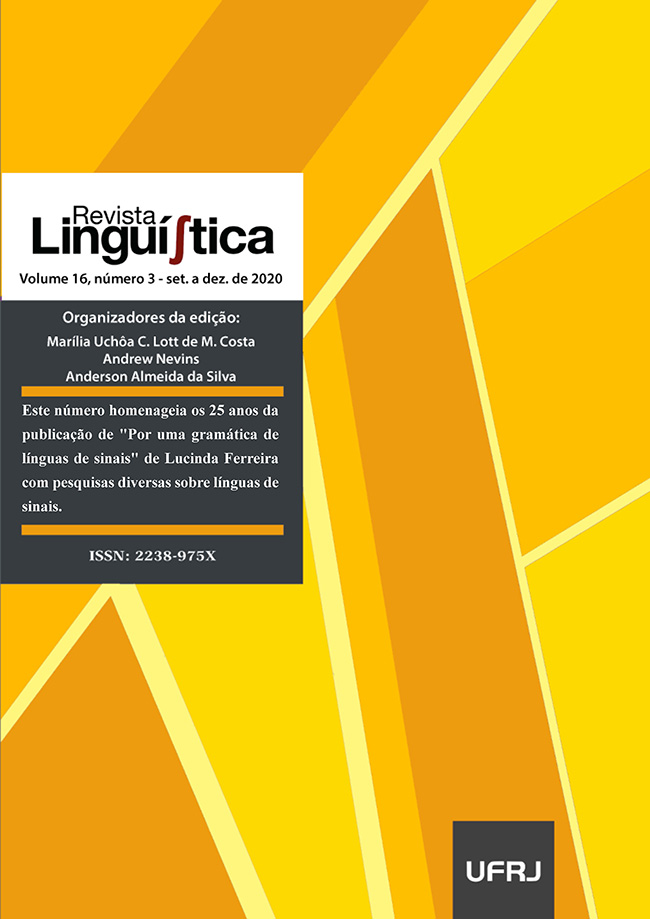Resolving pronominal reference in local contexts: a referent selection task
DOI:
https://doi.org/10.31513/linguistica.2020.v16n3a37412Keywords:
Pronominal Index (ıx), Second-mention preference, Spatial defaults, German Sign Language (Deutsche Gebärdensprache, DGS), Turkish Sign Language (Türk İşaret Dili, TİD).Abstract
Studies on global and local discourse have shown that sign languages indeed allow for occurrence of referentially unanchored pronominal index (ıx) signs referring to non-present antecedents to appear in ambiguous contexts. In local contexts, resolving the reference of these expressions has been suggested to either depend on a modality-specific anaphora resolution mechanism (localization) or on the next mention bias (first/second mention preference) influencing the salience of the referents. This paper presents a two-alternative forced choice referent selection task investigating the impact of a default localization pattern on the interpretation of referentially unanchored pronominal ix sign, in the local discourse with two competing antecedents. To do that, comparative response data was collected from right- and left-handed signers of German Sign Language (DGS) and Turkish Sign Language (TİD). Results provide evidence for second-mention or object preference for pronominal ix in both languages. In addition, the default localization pattern is identified only in restricted environments (i.e., with reciprocal verbs) to resolve pronominal reference. This modality-specific means is shown to be subject to variation across two unrelated sign languages under investigation.
---
Original in English.
Downloads
Published
Issue
Section
License
Authors who publish in the Revista Linguí∫tica agree with the following terms:
The authors maintain their rights, ceding to the journal the right to first publication of the article, simultaneously submitted to a Creative Commons license permitting the sharing with third-parties of published content as long as it mentions the author and its first publication in the Revista Linguí∫tica.
Authors may enter into additional agreements for the non-exclusive distribution of their published work (for example, posting in online institutional or non-profit repositories, or book chapters) so long as they acknowledge its initial publication in the Revista Linguí∫tica.

The journal Revista Linguí∫tica is published by the Post-Graduate program in Linguistics of UFRJ and employs a Creative Commons - Attribution-NonCommercial 4.0 International (CC-BY-NC).









